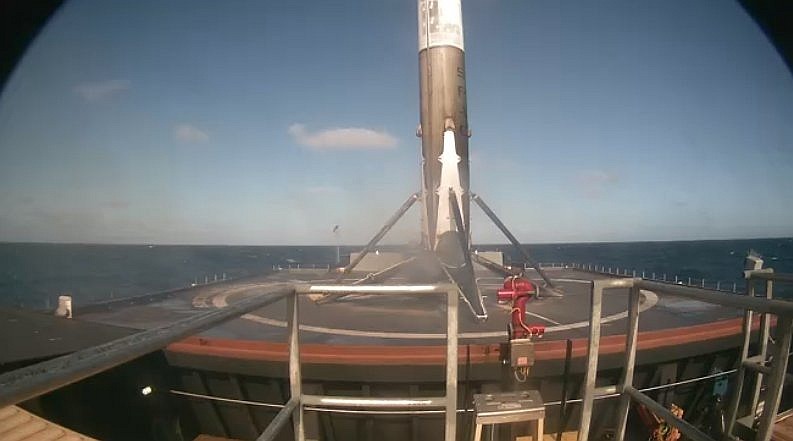Late last month a South African did something that the entire world is not only awestruck by, but immensely proud of. It was not Jacob Zuma or any of the ANC leadership, although there was a Pretoria connection.
On March 30th, the history books will show, space flight was forever changed when SpaceX reused a Falcon 9 rocket that had already made a trip to space. Having landed back on Earth on April 8 last year, the first phase of the rocket was reused to launch a satellite. It then landed on a robot barge in the ocean.

Calling it a “huge revolution in spaceflight,” when he spoke to reporters afterwards, Musk was beaming. “[I] am fairly confident we can reuse upper stage too by late next year to get to 100%” he tweeted. That leaves the fuel bill of $200,000 to $300,000; and space flight just got significantly cheaper.
It’s huge news. And it helps Musk, who went to school in Pretoria, to achieve his vision of humanity ultimately becoming “multi-planetary”.
Formed in 2002, Space Exploration is part of Musk’s plans to ultimately get humans to Mars. He is already offering tickets for $200,000 although he has warned potential astronauts they might die. I heard him joke at the South By South West conference in 2013: “I’ve said I want to die on Mars. Just not on impact”.
After the launch, Musk told reporters: “This represents the culmination of 15 years of work at SpaceX to be able to re-fly a rocket booster. The most expensive part of the whole mission, from a launch standpoint, is the boost stage.”
SpaceX has designed its Falcon 9 rockets to be reusable. So far 32 have been launched, and nine have been successfully landed from 14 attempts. As the gushing Musk noted: “It’s an amazing day for the space industry”.
Meanwhile, Musk says they are also trying to reuse the tip of the rocket, called the payload fairing. “At one point, we were debating whether we should try to recover it. Imagine you had $6m in cash in a pallet flying through the air, and it’s going to smash into the ocean. Would you try to recover it? Yes, you would.”
Half of the fairing on this trip was recovered, prompting him to say: “That’s definitely the cherry on the cake”.
Another of Musk’s plans, which he announced last year, is to launch 4,425 satellites into space to create a network to provide global internet coverage; although no date has been set for this.
The most poetic – and geeky – part of this reused Falcon rocket was the name of the drone ship it landed on. Musk has a quirky way of naming these barges after the sentient spaceships in the Culture sci-fi novels by Iain M Banks. The name of last month’s ship: Of Course I Still Love You.
This column first appeared in Financial Mail